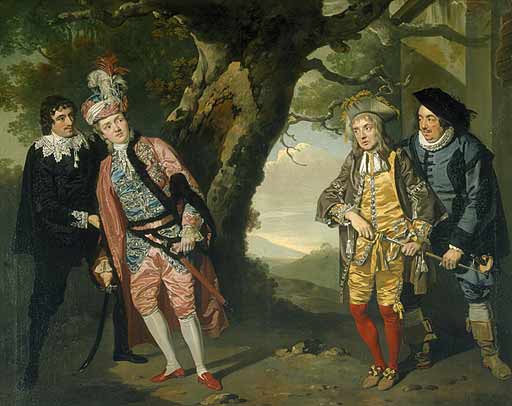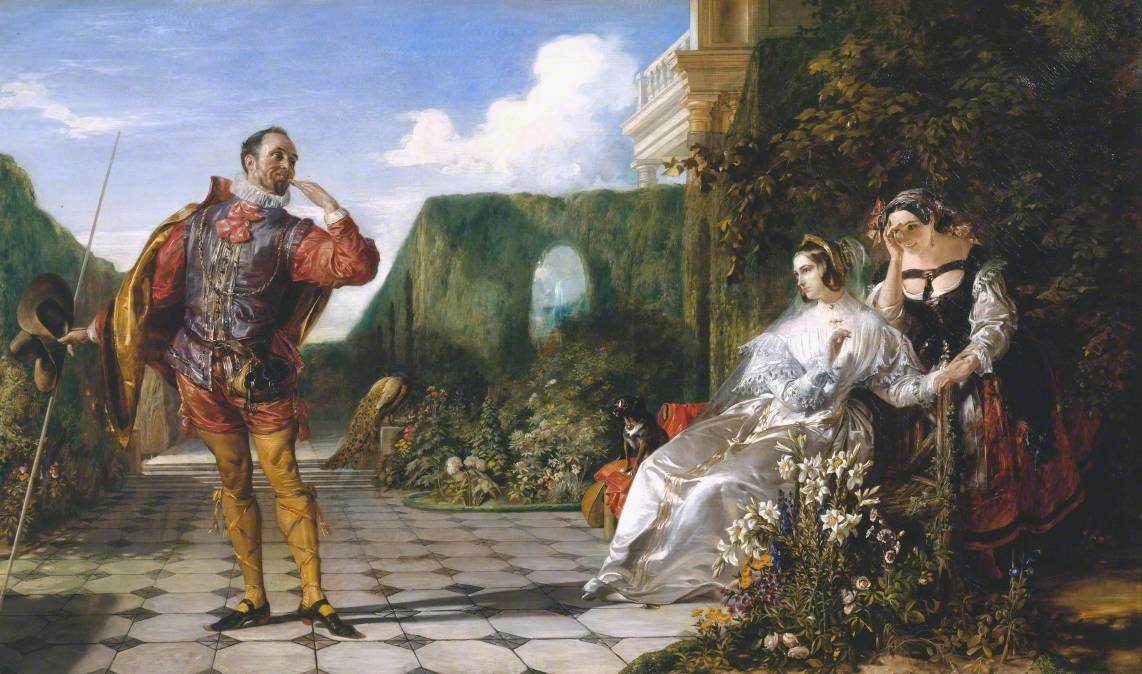By Maria-Nefeli Andredaki,
I recently had the pleasure of attending my first Shakespeare’s play, in a Venetian castle in Rethymno, Crete. Now, I must admit, I’ve never really been the biggest Shakespeare fan (Christopher Marlowe owns my heart as far as Elizabethan writers are concerned), but after taking a course on Hamlet, The Tempest and Comedy of Errors, I was left wanting more! I continued by reading Twelfth Night and A Midsummer Night’s Dream on my own, and, when I realized that one of them would be brought on stage, I immediately bought tickets.
The premise of Twelfth Night is simple; a pair of twins, brother and sister, are separated due to a shipwreck and both get stranded in Illyria, thinking that the other has drowned. Viola, the sister, decides to hide her own identity and assumes the one of a man named Cesario, while working as a page for the Duke of Illyria, Orsino. The plot becomes complicated when Cesario (Viola) falls in love with the Duke while the Duke is in love with Olivia, a noble lady whose family has died. The Duke sends Cesario to woo Olivia on his behalf, but Olivia falls in love with Cesario instead (who is actually Viola). This strange love triangle is what mainly drives the plot and creates a comedic atmosphere. On top of that, it is heavily hinted that Sebastian, the male twin, is romantically involved with Antonio, the one who saved him from the shipwreck.
Viola’s gender-queerness has been a topic of great discussion for a long time; many critics refer to her as “they” since they view her as encompassing both the masculine and the feminine interchangeably. Others make a point of Cesario’s transgender identity, since he willingly changes his physical appearance and name, performing a masculine role who is also seen as such by others; Olivia falls in love with the man she believes him to be. This issue of Viola/Cesario’s identity is very nuanced and opens up a bigger discussion involving the other characters’ sexual identities. Even after everything is revealed, the Duke says “Cesario, come, For so you shall be, while you are a man. But when in other habits you are seen, Orsino’s mistress and his fancy’s queen”, showing that he is not particularly concerned about his future partner’s gender identity and views them as both masculine and feminine depending on the situation.

It is important to note that Cesario’s androgyny is highly praised by other characters in the play and he is even seen as a wooer. He blurs the lines of the typical gender binary while also abiding by it and appearing as male- becoming male. Until the very end, Cesario can never really be separated from his maleness; it is as if it has been engraved in the minds of the people who perceive him, wholly accepted, even by the all-powerful Duke who decides to make him his “wife”. And let’s not forget another interesting layer; Back in Shakespeare’s days, even the female roles were played by men (usually younger boys), so in Cesario’s case, the role is played by a man who performs the role of a woman who presents as male!
The 2023 summer Greek Production, directed by G. Kimoulis, did not once shy away from pointing out the characters’ queerness, which was really refreshing to see on a Greek stage. They all expressed their love openly, using explicit language that did not leave the viewers wondering whether they were just “really good friends” (especially in the case of Sebastian and Antonio).
As an advocate of inclusivity and representation in literature, reading and seeing this classic brought to life was a really comforting reminder that there is and has always been a space for everyone. Shakespeare may have not known it or done it consciously but he surely created a masterpiece that puts to shame many current mainstream “progressive” shows that constantly queerbait and use the queer experience as a means of profit.
References
- Twelfth Night, SparkNotes. Available here
- Twelfth Night, Entire Play Folger Shakespeare Library. Available here




